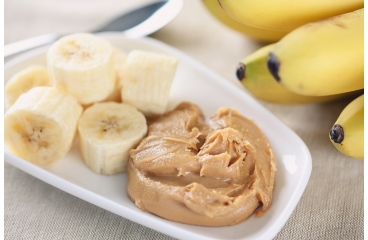Why can it be hard to eat during cancer treatment?

Many people have trouble eating and getting enough nutrition during cancer treatments. Your cancer treatment may include chemotherapy, radiation, surgery, or other therapies. Remember that people getting the same treatment may respond in different ways. You may have:
- Fatigue. When you're tired, you may not feel like eating or have enough energy to eat. It's okay to rest when you need to and to eat when you feel better.
- Constipation. Some cancer treatments and medicines you take can cause constipation. Walking and other physical activity can help. So can drinking enough water. Using the bathroom at the same time each day can also help.
- Nausea and vomiting. These side effects can make eating unpleasant. Try sipping water and other clear liquids throughout the day and munching on snacks after you start to feel better.
- Diarrhea. Try drinking clear liquids. When you feel like eating, start with small amounts of food.
- Loss of appetite. This can happen if you have other symptoms like nausea or vomiting. Or it may be a side effect of the cancer itself. Some people can eat better in the morning. Ask your doctor about medicines to treat any eating problems you have, such as nausea or lack of appetite.
- Taste changes. During cancer treatment, you may have a bitter, metallic, or salty taste in your mouth. Or you may lose your sense of taste. Try eating cool or cold foods. Foods that are served cool, cold, or refrigerated have less taste and aroma. Try using plastic utensils if food tastes metallic.
- Mouth or throat sores. It may be hard to chew or swallow. Try to keep your mouth clean and to eat soft foods. Your doctor may suggest a special mouthwash that can help.
How can you manage appetite loss during cancer treatments?
When you are getting cancer treatments, you may need to try different eating habits to get the food you need.
- Try to eat more of the foods you like during the days and times when your appetite is good. When you don't feel like eating your normal foods, try different foods than you normally eat. Clear broths or soups and mild foods may be good choices.
- Eat healthy food. Even if you don't feel like eating, try to eat foods that have protein and extra calories. These foods can help to keep up your strength, support your immune system, and prevent weight loss. Try foods high in protein such as lean meats, dairy, nuts, beans, and soy products. Colorful fruits and vegetables are high in vitamins and nutrients that can help your body heal.
- Try easy nutritional drinks when you just don't feel like eating. You can drink liquid meal replacements (such as Ensure or Boost) for more calories and protein.
- Eat smaller meals and snacks throughout the day. Set a schedule for meals and snacks, and plan for times when it feels best to eat. Try to eat your main meal early.
- Stay hydrated. Drink plenty of water, juices, or other liquids.
What happens if you can't eat enough?
If you have a hard time eating, talk to your doctor, nurse, or dietitian. They can suggest food or diet changes. Or your doctor may suggest medicine that can help. Most people are able to continue eating. But in rare cases, you may need other ways to get nutrition, such as a feeding tube.
Follow-up care is a key part of your treatment and safety. Be sure to make and go to all appointments, and contact your doctor if you are having problems. It's also a good idea to know your test results and keep a list of the medicines you take.
Where can you learn more?
Go to http://www.healthwise.net/patientEd
Enter N165 in the search box to learn more about "Learning About Nutrition Problems During Cancer Treatment".
Current as of: October 25, 2024
Author: Ignite Healthwise, LLC Staff
Clinical Review Board
All Ignite Healthwise, LLC education is reviewed by a team that includes physicians, nurses, advanced practitioners, registered dieticians, and other healthcare professionals.

